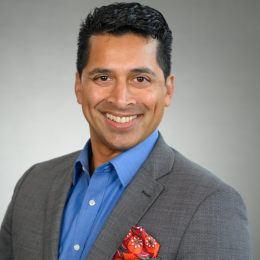Banner artwork by aurielaki / Shutterstock.com
As today’s global business environment continues to face issues in data security and privacy, supply chain complexities, digital transformation, increased customer demands, and the ability to recruit and retain top talent, untangling these challenges requires the role of the chief legal officer (CLO) to be agile, follow suit, react, and develop business acumen.
For today’s CLO, the transition from outside advisor to an executive on the senior leadership team means the willingness to adapt. Joseph Chan, chief legal officer at Yum China, explores his views and insights of how today’s challenging business landscape is changing the CLO role with ACC's International Director of Corporate Membership & CLO Engagement Prabir Chakrabarty.

Prabir Chakrabarty: Did you always know you wanted to be a lawyer?
Joseph Chan: I believe that I’ve known since an early age that I wanted to be in law. In elementary school, while my friends were writing down that they wanted to be a doctor or a fireman, I remember writing down that I wanted to be a lawyer.
Chakrabarty: How did you enjoy working in a law firm?
Chan: I enjoyed it very much. For a young lawyer, there’s no better training. In law school, you’re trained to think like a lawyer. It’s grounded in you. In private practice, you learn from senior practitioners and your peers, across different subject areas or domains. It’s hard work, high pressure, no doubt, but I attribute my current role to my training in private practice.
Chakrabarty: How did you arrive at your current position at YUM China and what challenges did you face adjusting to the role?
The change in mindset is the biggest challenge. You assume a different role.

Chan: The opportunity to join Yum China was serendipity and intriguing. When you transition from being an outside advisor to an executive on the senior leadership team, you need more than good lawyering skills.
As outside counsel, you apply law to the facts provided by the client and you offer advice, but your client may take or ignore your advice.
The biggest difference when you are in-house, especially as part of the management team, is that you are now part of that decision-making process.
I’m still learning to apply the law in rapidly changing environments. People want you to take a position and what advice you give needs to be actionable. They look to you as a problem-solver. The change in mindset is the biggest challenge. You assume a different role. The role comes with a unique set of challenges, but also opportunities for you to grow as a business leader.
Increasingly, as the top legal person you need to be a business leader.

Increasingly, as the top legal person you need to be a business leader. Ninety percent of the business meetings I participate in don’t really deal with legal matters; they are about business, about strategy. One needs to pivot from a narrow legal mindset to embrace business management.
As a lawyer, you have your core skills in risk management and risk mitigation, and you have your training that can be applied to problem solving, but first and foremost, it’s your value-add as a business leader, not purely a lawyer, that matters most to the enterprise. When you’re part of an executive team, you’re a business leader. You need to adopt an expansive, strategic mindset to be valuable.




